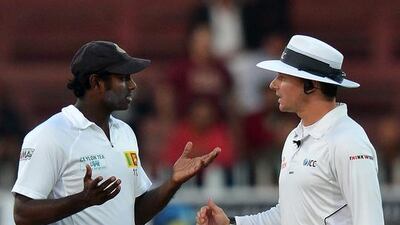THE GOOD
Pakistan’s Generation Next
One of the great pities of yesterday’s opus at Sharjah Cricket Stadium was the fact Azhar Ali had to vacate the scene as quickly as he did.
With light drawing in, he ran from the field when he was given out, just in case the umpires wanted to call a halt to proceedings with victory within touching distance of Pakistan.
It was harsh.
Given the match-winning century he had just put together, he deserved to be able to milk the acclaim for all of time. He should still be in the middle now, waving his bat.
As it was, he scurried to the dressing room, and swung his bat above his head in celebration just before he crossed the boundary line.
Maybe this salvo will convince the selectors he is worth some long-term faith.
He is not the only one of the coming brigade who furthered his case this month.
Sarfraz Ahmed, the wicketkeeper, had a fine series in the absence of the injured Adnan Akmal.
And Ahmed Shehzad, who bears the albatross of being a Young Pakistani Opener, set up the win in the final Test with a magnificent century, his first.
Sri Lanka’s pace attack
One way to describe people who want to bowl seam-up on the back-breaking, soul-destroying pitches of the UAE would be “gluttons for punishment”.
Kumar Sangakkara, the Sri Lanka batsman, preferred “revelation” in reference to his side’s unheralded pace attack. “I think it has been a revelation, especially Suranga Lakmal and Shaminda Eranga,” the ex-captain said.
“The way they have bowled and the discipline they have shown, as well as the fitness to last three Test matches bowling very long spells, they have done a fantastic job. Also, Nuwan Pradeep’s short bursts in Dubai were very pleasing to see.
“There are various ways you can gauge your fast bowlers but the most important thing is that they are willing to work. I think they have done all they can and all we could ask for on this tour. They have been incredible for us.”
THE BAD
Pakistan’s reviewing
Pakistan have long felt hard done by the Decision Review System. This series was grist to the mill for the conspiracy theorists.
The only time anybody wearing green headgear should ever make a T-sign is if they are ordering chai.
Doing so to try to get an umpire’s decision reversed is just utterly pointless.
“In my short, two-year spell with the team it just seems to have worked against us more often than not,” said Dav Whatmore, the Pakistan coach.
Sri Lanka were not a whole lot better – but no-one’s success rate in reviewing is ever as bad as Pakistan’s. “That is how the DRS works and it can frustrate you,” Sangakkara said.
“Unfortunately, there have been a lot of umpire’s calls going against Pakistan, but that would have been the same if we had reviewed those decisions.”
Mathews’s logic
His 412 run aggregate in this series marked Angelo Mathews out as a batsman of class. By contrast, his musings yesterday, post defeat, suggested a captain who has a curious grip on logic.
Why have nine fielders on the boundary when the opposition needed less than a run a ball? We wanted wickets, was his justification. And the reason for defeat? The batsmen were not cautious enough, according to a captain whose side bumbled along at 2.1 runs per over.
Even the young colt Shahzad, after his first Test century here, felt in a position to call the odds about a player who is far more established than himself.
“There are some captains who are aggressive and then there are some who are defensive,” Shahzad mused of Sri Lanka’s dull leg-theory on Day 3 of the Sharjah Test.
Alastair Cook has already proved this winter that excessive caution can be detrimental to a captain.
THE UGLY
The rest of it
The series had an entertaining climax that it did not deserve. The 14 days of cricket which preceded it were pure drudgery.
The vultures have been circling around Test cricket lately.
Seeing as this series was characterised by tepid cricket watched by paltry crowds, is it really worth saving?
The die had already been cast in the first two matches, then Sri Lanka turned into the fun police when they needed only a draw in Sharjah to seal the win. If antisocial playing hours do not kill the game, then poor scoring rates will.
And Sri Lanka’s rate of 2.1 in their second innings in Sharjah certainly deserved what in Britain is called an “anti-social behaviour order”.
“People work,” Whatmore said of the empty stands. “On Friday, people were there and I think on Saturday there were a sprinkling more.
“The population of expatriates here need to earn an income. It is difficult for them to just leave their jobs and come.”
The slow burn is one of the great attractions of Test cricket, but this series was too tardy about getting to the point.
pradley@thenational.ae
Follow us on Twitter at @SprtNationalUAE


